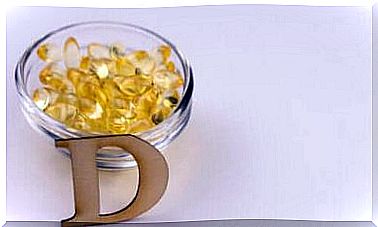Paroxetine: Uses And Side Effects

Paroxetine is a drug that belongs to the family of serotonin reuptake inhibitors, or SSRIs. These medications are widely used antidepressants for the treatment of various pathologies, such as clinical depression, obsessive-compulsive disorder, social anxiety disorder and generalized anxiety disorder, among others.
Serotonin reuptake inhibitors are able to increase the synaptic concentration of this neurotransmitter in nerve endings. We’ll look at this mechanism later and in detail. It is a drug analogous to fluoxetine, one of the most representative drugs in this group of antidepressants.
Paroxetine was marketed in 1992 by the company now known as GlaxoSmithKline. However, this company had to pay a fine imposed by the US Department of Justice for promoting the use of paroxetine in minors. Another cause was the elaboration of an article in which they falsely reported its effectiveness in treating depression in adolescents.
What is depression?

Depression is an emotional disorder that develops causing a constant feeling of sadness, major depressive disorder
- Feelings.
- Thoughts.
- Behaviors.
- Activities of everyday life.
Depression is a serious illness, not a feeling of temporary sadness. It may even prompt the patient to commit suicide. However, despite the treatment lasting several years, this disease can be overcome.
Regarding the causes, it should be noted that, except in some cases where depression develops secondary to other diseases such as Parkinson’s or tuberculosis, depression is usually triggered by a combination of factors. Among them, we mention:
- Biological: hormonal changes or changes in brain neurotransmitters, such as serotonin, for example.
- Psychosocial: such as family or workplace problems.
- Personality: especially those mechanisms related to psychological defense.
How does paroxetine exert its effect on the body?
Paroxetine increases serotonin in the central nervous system . However, unlike other antidepressant medications, it does not affect concentrations of other biological amines such as norepinephrine.
Despite knowing this information, the precise action of paroxetine is not yet clear, nor that of other serotonin reuptake inhibitor antidepressants.
In animal studies, paroxetine has been shown to be more potent than sertraline and much more potent than fluoxetine in its ability to inhibit the reuptake of this neurotransmitter.
Serotonin is, as we have seen, a neurotransmitter in the central nervous system. Specifically, it is responsible for regulating mood and many people know it as the happiness molecule. Low serotonin levels are related to the development of depression. That’s why paroxetine, by inhibiting its reuptake, makes more neurotransmitters available to trigger its effects.
Paroxetine Side Effects

Paroxetine, like all drugs on the market, can produce a number of unwanted effects for the patient.
Among the most common, it is worth noting the appearance of nausea and vomiting in 25% of patients, and constipation or diarrhea in 16.5%, with these effects being responsible for 20.9% of patients treated with paroxetine who discontinued treatment.
However, if the patient continues with the treatment, they usually get used to some of the gastrointestinal problems; they might even disappear. However, there are others, such as dry mouth, that can persist.
On the other hand, it is worth noting that if paroxetine is administered with other drugs that also increase serotonin levels, the syndrome serotonin can be triggered, manifesting with the following symptoms:
- Nausea and vomiting
- Sedation
- Dizziness
- Somnolence
- Hypertension
- Others
Conclusion
Paroxetine is a drug used to treat depression. It owes its antidepressant effect to the ability to increase the concentration of serotonin, a neurotransmitter that intervenes in people’s mood and whose deficit favors the onset of depression.
Consult your doctor or pharmacist if you have any questions about this medicine and follow the recommendations they give you to try to avoid adverse effects and possible complications.









